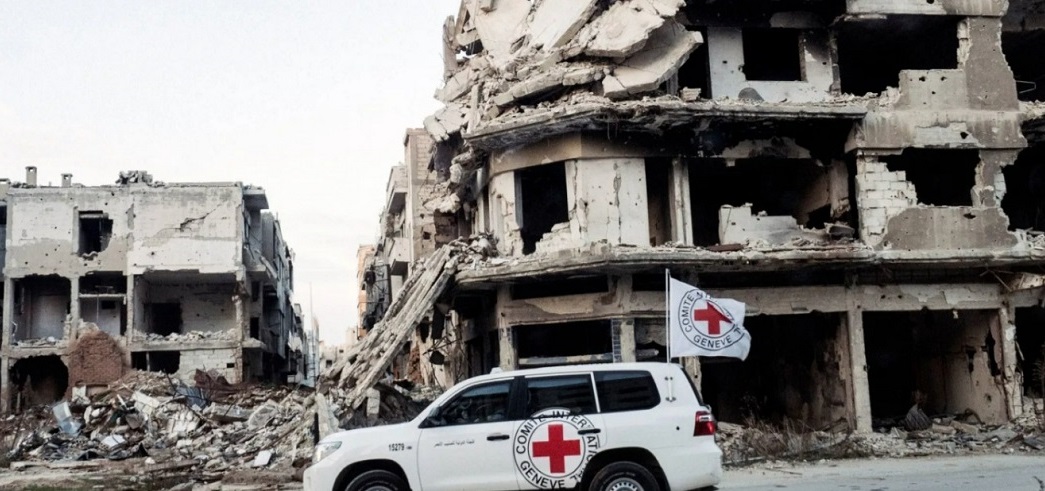Behind every such case, there is a family and excruciating pain that only gets worse as years go by. During this time, we never stopped working to bring answers to families about the fate of their missing loved ones. Families’ right to know has always been our priority, and it still is.
This week, as prisons opened and detainees were released, these families lived through an emotionally trying moment – a moment filled with hope but also with anguish, anger, and frustration.
On Tuesday, my team and I went to Sednaya prison for the first time. We saw hundreds of people waiting outside. I spoke to an elderly woman who stood there since 7 am, desperate for any scrap of information about her son missing for over ten years.
Inside the prison, we saw piles of damaged documents scattered throughout different rooms. These records may contain crucial information that could help families find long-awaited answers. We placed the documents in the custody of those in charge of security of the prison.
This is why the ICRC is urgently calling on all parties across Syria to prevent the destruction of crucial records, like arrest logs, lists of detainees or deceased persons; and court and hospital records.
The past week’s events have unfolded very rapidly, but we used every opportunity to support ex-detainees and people searching for their missing loved ones. Early in the week, we opened hotlines for released detainees and family members who sought to be reunited.
Drawing on the ICRC’s long experience, we immediately offered to help all parties exercising authority in Syria to locate the missing. This assistance includes technical support to preserve records, safeguard gravesites, protect personal data, and ensure professional forensic practice in line with international standards. We also stand ready to act as a neutral intermediary to facilitate search and identification.
At the same time, we will continue supporting released detainees and families of the missing to meet their most urgent needs, offering mental health support, healthcare, economic assistance, and legal and administrative aid. This week, for example, we delivered medical supplies to two hospitals in Damascus to help care for the wounded and ex-detainees.
We have also offered our services to parties involved in the conflict to visit people they detain.
Since the start of the armed conflict in Syria, the ICRC has never stopped advocating for access to all places of detention in Syria. The images we saw this week illustrate how vital this access is to prevent some of the worst human suffering in Syria or anywhere else in the world.”
About the ICRC
The International Committee of the Red Cross (ICRC) is a neutral, impartial and independent organization with an exclusively humanitarian mandate that stems from the Geneva Conventions of 1949. It helps people around the world affected by armed conflict and other violence, doing everything it can to protect their lives and dignity and to relieve their suffering, often alongside its Red Cross and Red Crescent partners.



Comments